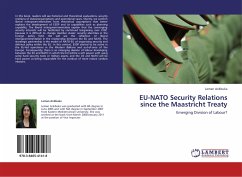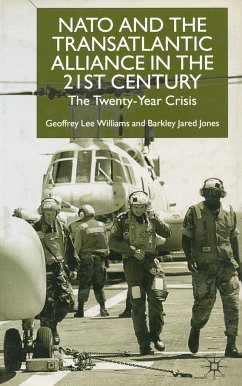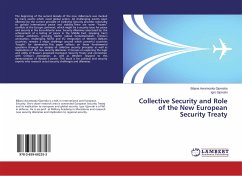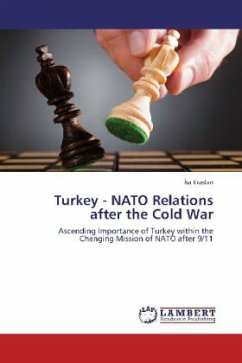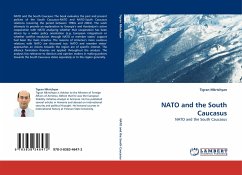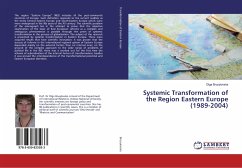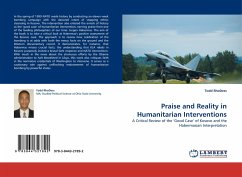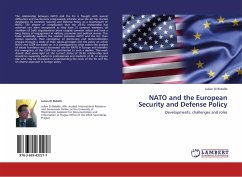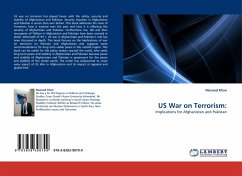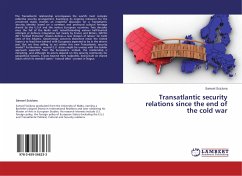
Transatlantic security relations since the end of the cold war
Versandkostenfrei!
Versandfertig in 6-10 Tagen
16,99 €
inkl. MwSt.

PAYBACK Punkte
8 °P sammeln!
The Transatlantic relationship encompasses the world's most complex collective security arrangement. Examining its ongoing relevance for the concerned states involves an insightful discussion on a Transatlantic 'security identity' based on a common and profound cultural heritage shared by the U.S.A and the various European countries. Two decades since the fall of the Berlin wall, notwithstanding various half-hearted attempts at defence integration led mainly by France and Britain, NATO's 2011 'Unified Protector' mission defines a new 'division of labour' for both sides of the Atlantic. Geostra...
The Transatlantic relationship encompasses the world's most complex collective security arrangement. Examining its ongoing relevance for the concerned states involves an insightful discussion on a Transatlantic 'security identity' based on a common and profound cultural heritage shared by the U.S.A and the various European countries. Two decades since the fall of the Berlin wall, notwithstanding various half-hearted attempts at defence integration led mainly by France and Britain, NATO's 2011 'Unified Protector' mission defines a new 'division of labour' for both sides of the Atlantic. Geostrategic concerns elsewhere mean the United States is to 'lead from behind' with Europeans expected to be in the driver's seat. But are they willing to act within this new Transatlantic security 'model'? Furthermore, neutral E.U. states might be uneasy with the bolder approach expected from the Europeans. Indeed, the relationship is morphing, and although its actors depend on this security community for geopolitical reasons, it goes beyond mere realpolitik, being built on shared values which its member states - 'natural allies' - protect in league.



